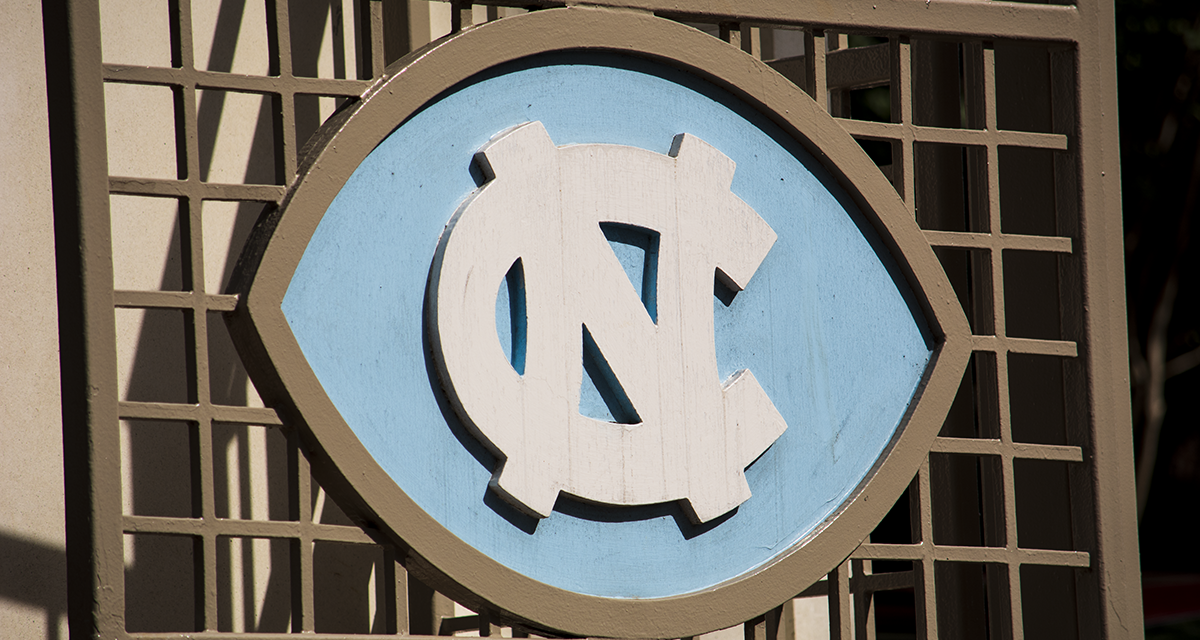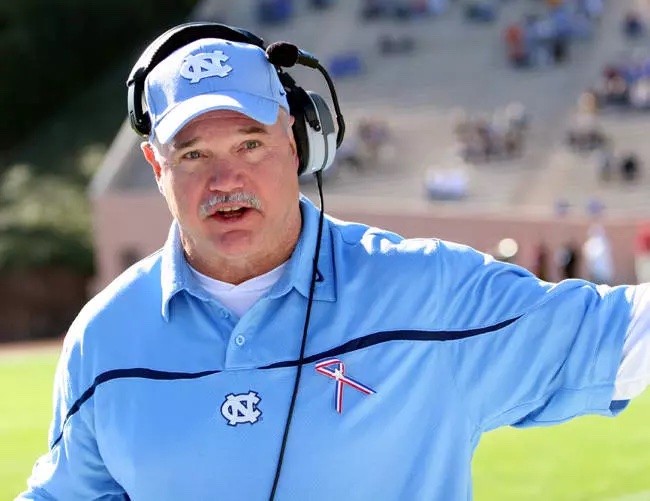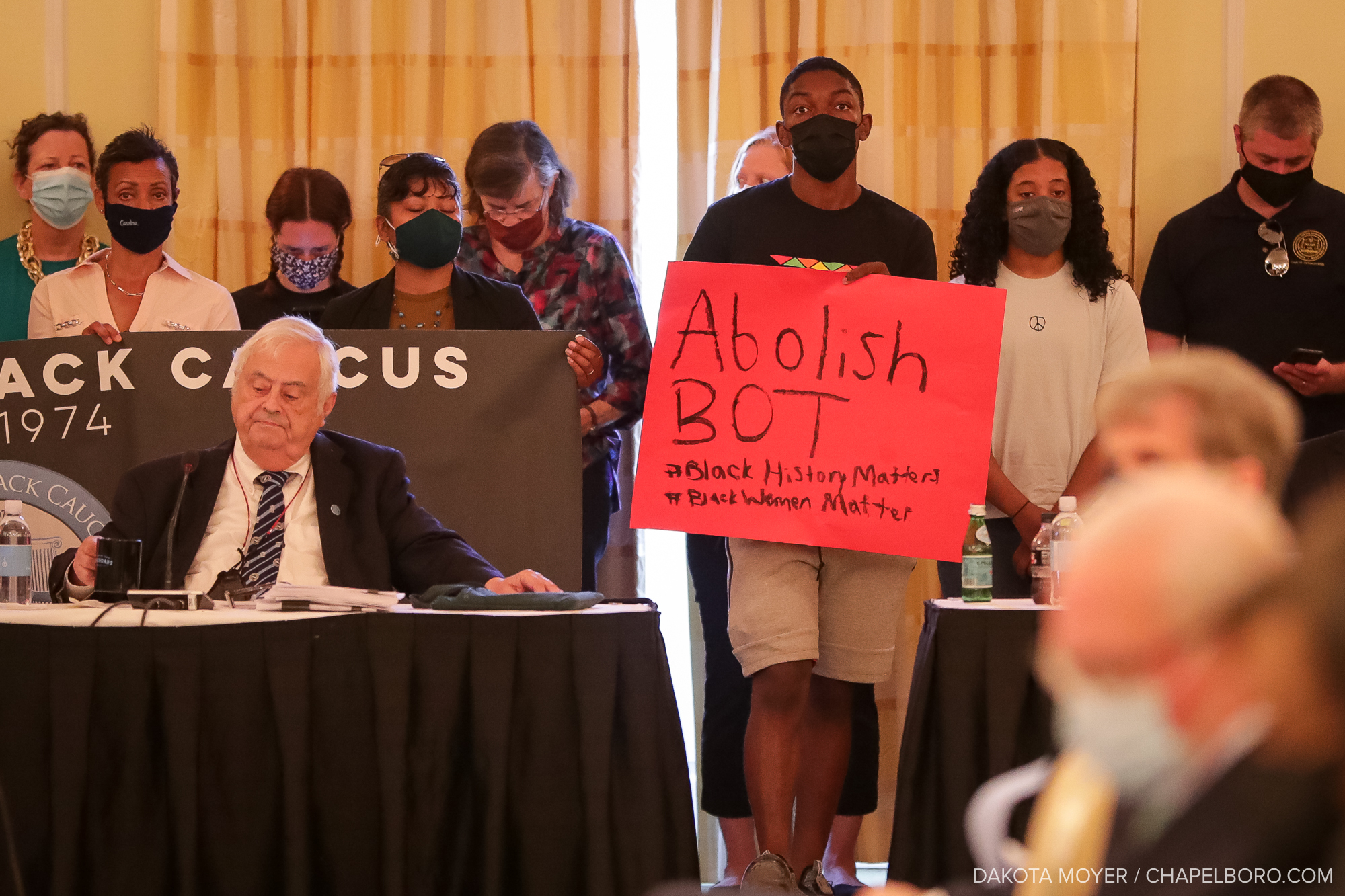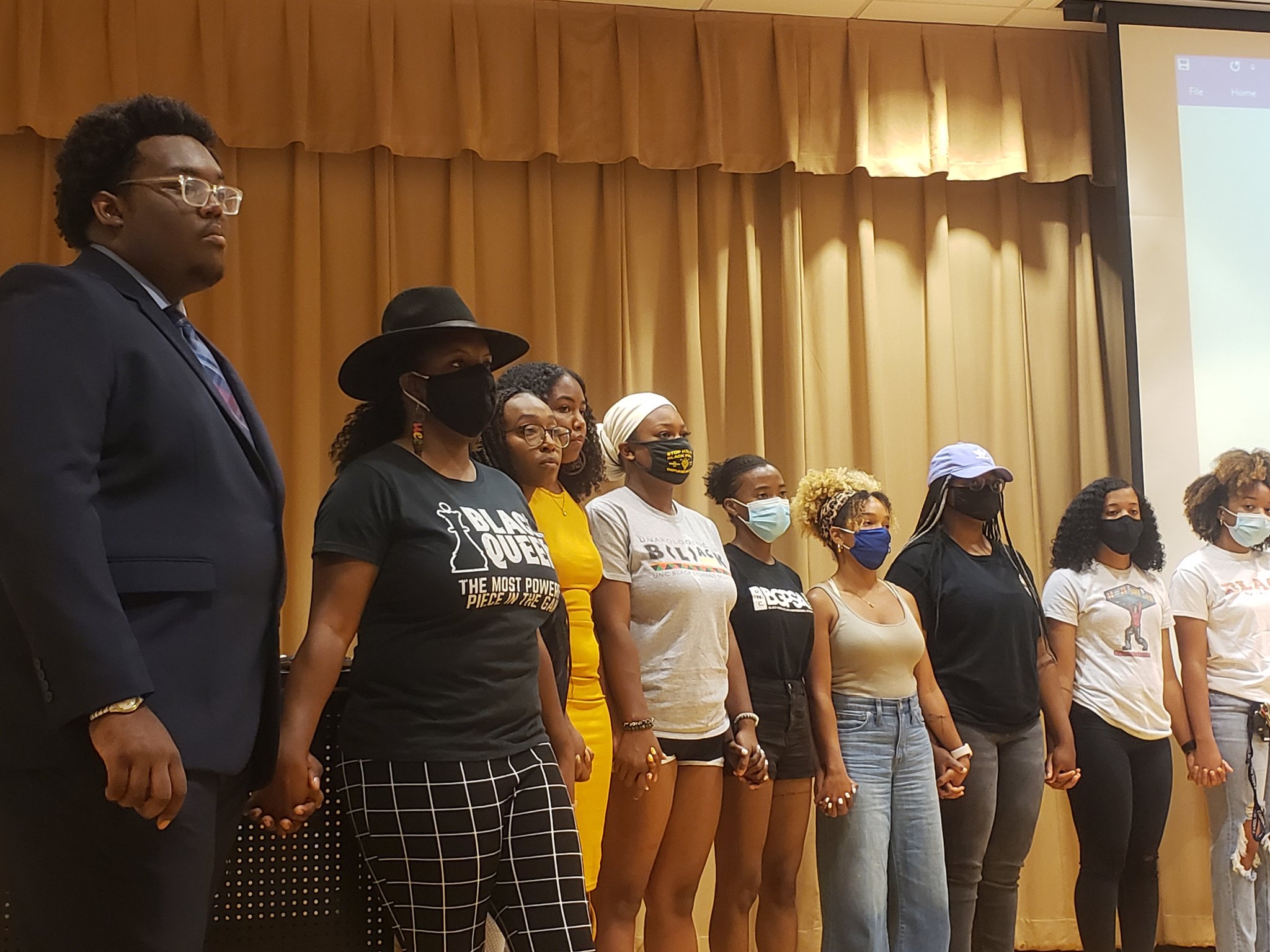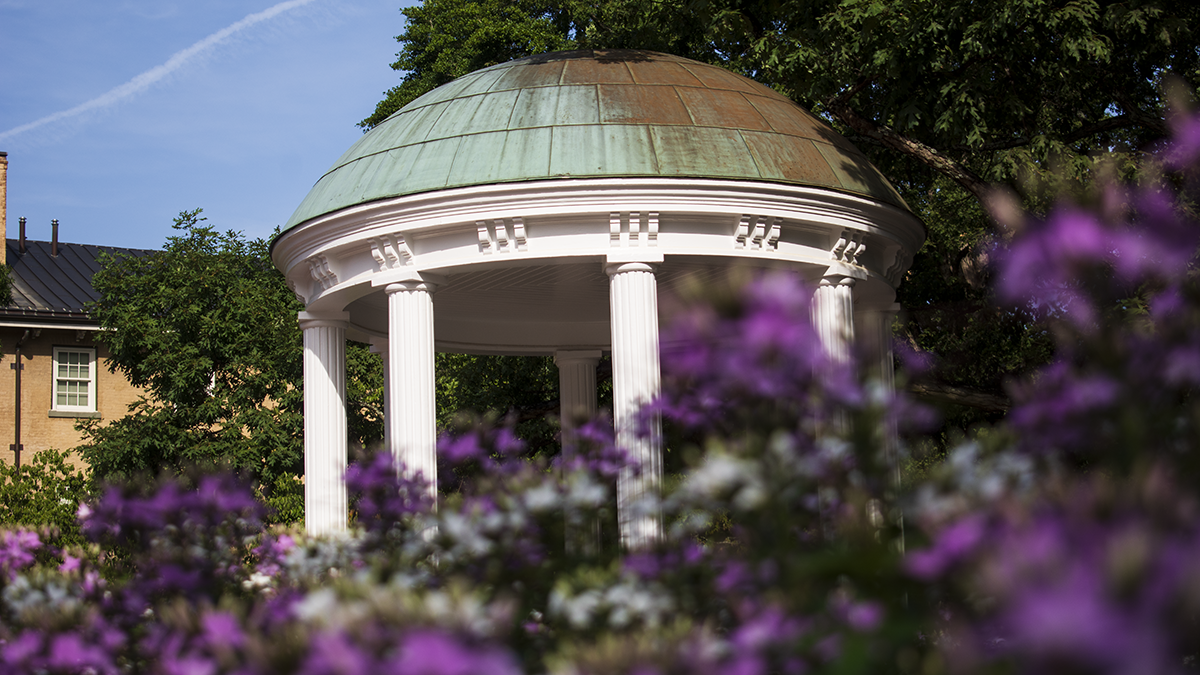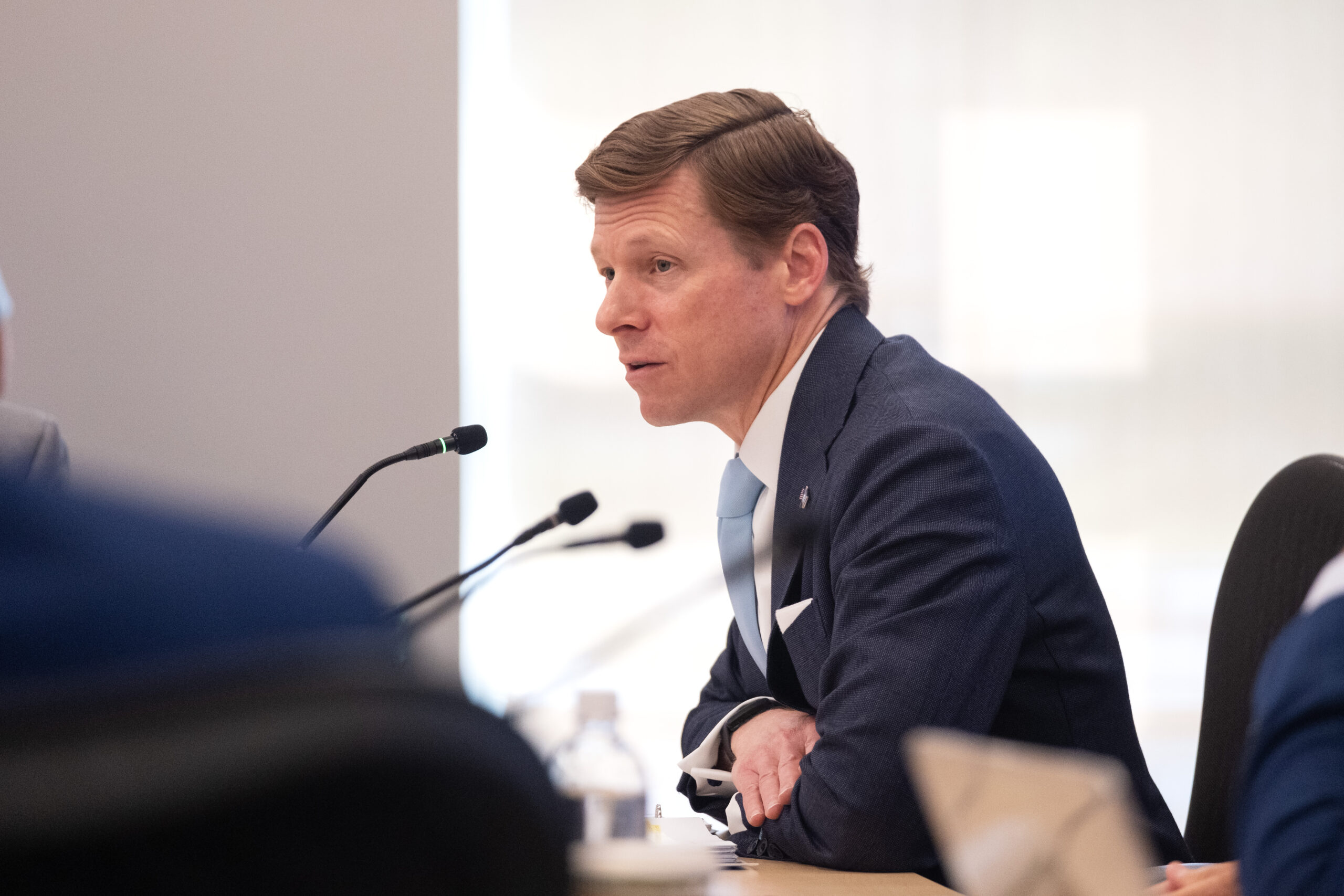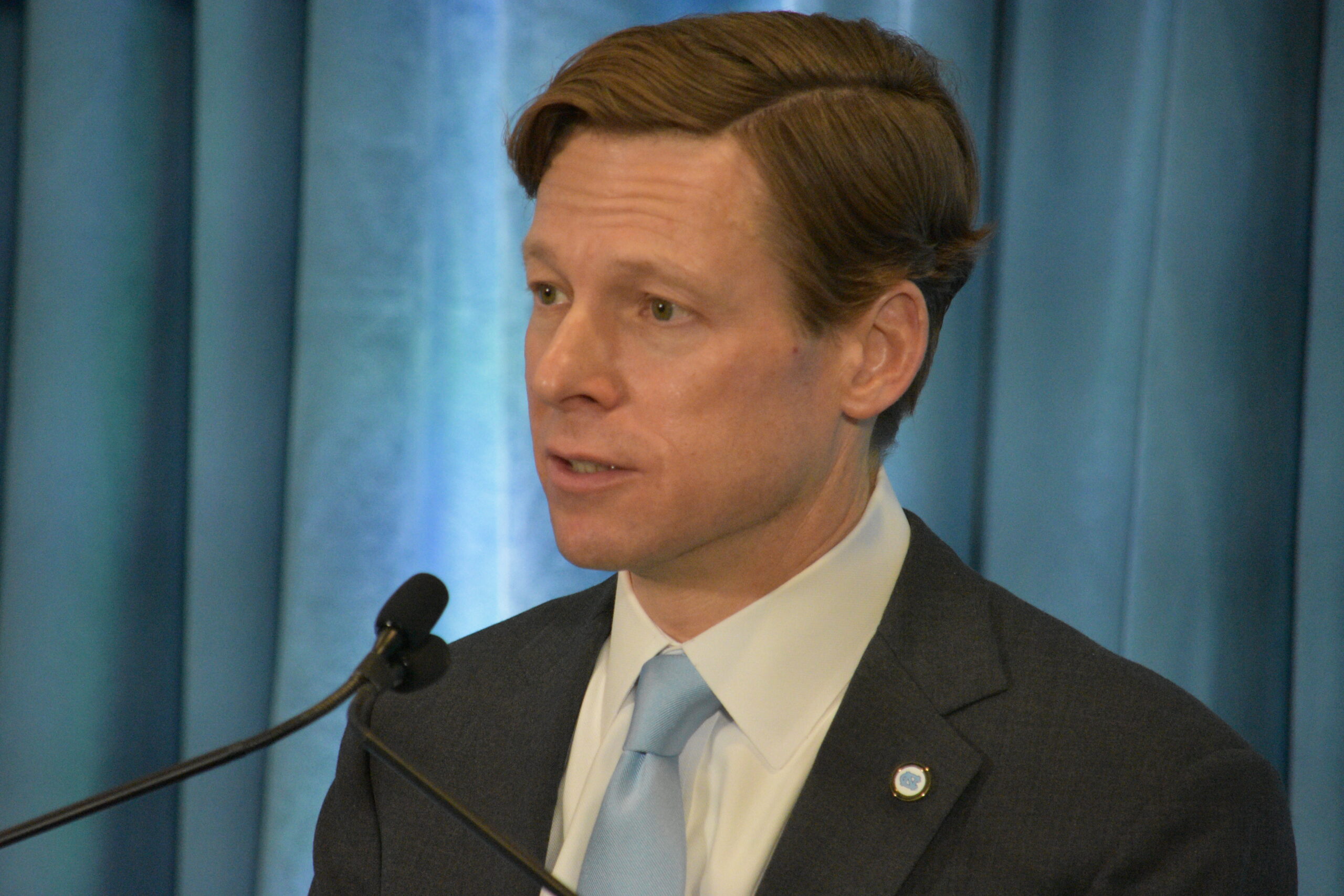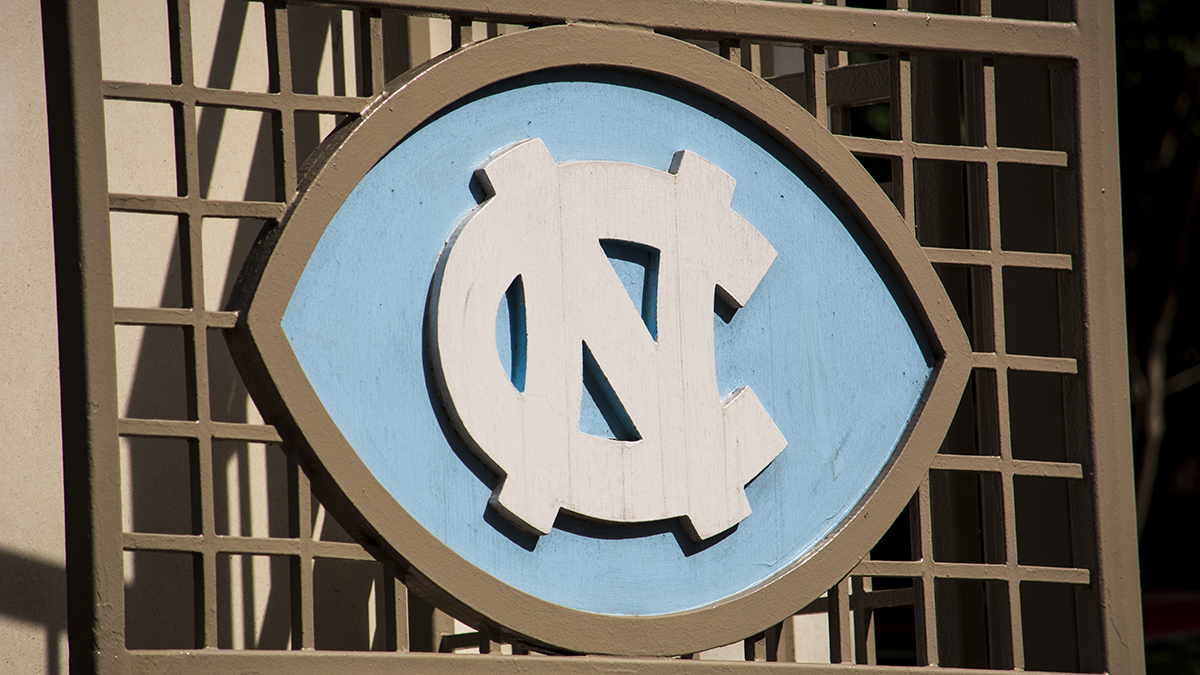The storm brewing around UNC football is familiar in some ways, but potentially more volatile than others we’ve experienced. And that is because Bill Belichick has come to town with more expectations than any of his Carolina predecessors and arguably even less on-field talent to work with than most of them.
UNC had stability in its program of 10-plus year coaches Bill Dooley in the 1970s, Dick Crum in the 1980s and Mack Brown 1.0 in the ‘90s. Those coaches won a total of four ACC championships (in the pre-Florida State days), earned 18 of the school’s total 39 bowl bids and each left with the most victories in Tar Heel football history.
The constancy of those 31 seasons has not been matched, or even close to it. Mack Brown 2.0 ended ugly followed by the surprise hire of an NFL icon. Belichick could still set his own high marks, but he is racing against time and resources.
Crum’s hire came after Dooley left for Virginia Tech in 1977. He had the Miami of Ohio coaching pedigree, but wasn’t on the original list of candidates, and got the job after UNC refused to consider East Carolina’s Pat Dye, who was good enough as a coach and recruiter to take the Tar Heels to another level. Instead, Crum inherited some of Dooley’s recruits, including Lawrence Taylor, and won the school’s last ACC championship in 1980. Then after Crum resigned in 1988 came Brown, who matched Dooley’s 69 wins in one fewer season (10).
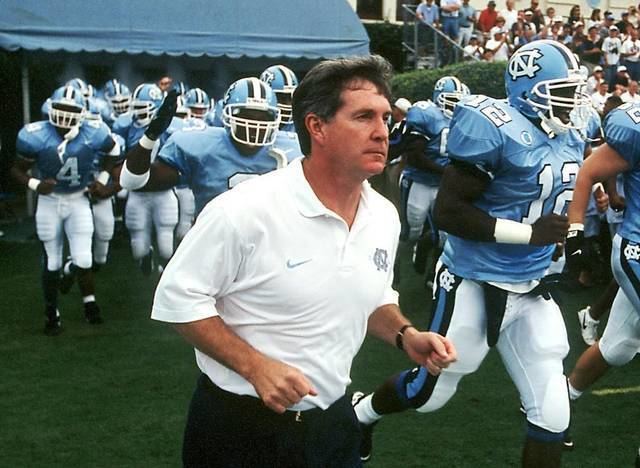
Mack Brown leads the Tar Heels out onto the field during his first coaching stint with the program. (Photo via the Associated Press.)
During all three of their decades, Carolina was undoubtedly a basketball school, which rankled the head football coaches from time to time. Football might have played second fiddle, but at least had stability that we’ve not seen since. Or anything even close to it.
In 1997, when Texas made Brown an offer he couldn’t refuse, UNC Athletic Director Dick Baddour believed he could hire Jim Donnan, who had finished the second of four seasons at Georgia. After Donnan — a Burlington native who starred at N.C. State and was an assistant at UNC for four years — was about to resign in Athens, Georgia Athletic Director Vince Dooley either talked or bullied him out of it.
Baddour had a top-10 program that would have attracted numerous other head coaching candidates, but he decided elevating defensive coordinator Carl Torbush would maintain the continuity of what Brown had built. Torbush led the 1998 Tar Heels to a win in the Las Vegas Bowl to finish 7-5. The next year, he was 1-8 after bad losses to Maryland, Furman and Wake Forest, and told members of the media that he had been fired but could finish out the season.
Dean Smith and women’s basketball coach Sylvia Hatchell were among those who thought the popular Torbush deserved more than two years — and after he upset N.C. State in Charlotte and crushed Duke 38-0 in Kenan Stadium, UNC apparently withdrew the pink slip.
Carolina held a strange press conference to announce it was retaining Torbush, who had a loud argument on his way out of the room with an AP writer whom he had apparently talked to about his firing before it was reported.
Midway through the next season, when Torbush’s 2000 team was 3-5, the agent for Virginia Tech’s Frank Beamer called Baddour and said the Hokies’ respected coach would leave Blacksburg for Chapel Hill. The agent asked Baddour if he could still fire Torbush if he won the last three games, which he did to finish 6-5.
Carolina turned down a bowl bid and dismissed Torbush. Chancellor James Moeser went in front of the Board of Trustees and said he wanted to bring in the well-respected Beamer. The school would need to give him a multi-year contract worth about $1.5 million annually, which the trustees thought was too much money.
Meanwhile, Beamer was meeting with the new Virginia Tech president, who agreed on raises for his staff and the upgraded facilities he had been harping about. For the second time in three years, a coach who had agreed to come to Chapel Hill changed his mind and left Baddour in limbo.
John Bunting — a former star linebacker for UNC who had been the co-defensive coordinator for the Super Bowl champion St. Louis Rams — was interested in taking over the Tar Heel program and enlisted several of his old Tar Heel teammates to recommend him to Baddour.
The beleaguered Baddour went back to the Trustees, told them Beamer was out, and that they would be happy with the new coach, who was an alumnus and would make less than half of what they were going to pay Beamer. Some of Brown’s recruiting class of 1997 was still in school, including Julius Peppers, who led Bunting’s first UNC team to the Peach Bowl, where it defeated Auburn, 16-10.
Bunting’s problem was that he had never coached Division I football, and his closest contacts were friends he either knew well or worked with in the NFL. Bunting did not have a winning record with any of his next five teams — and midway through the 2006 season, the trustees told Baddour to fire the coach.
Apparently the trustees had a history of meddling in the football program back then too and delivered the news to Bunting. Meanwhile, they were raising a war chest to hire a new coach and had their minds set on Butch Davis, who had just finished being paid off by the Cleveland Browns and pocketed about $2.5 million.
Davis was a big name, having coached Miami into a top-10 program that would play for the national championship the year after he went to the NFL. Now, Davis was looking for a new college job, and his people contacted UNC, which hired him for just under $2 million a year, beginning in 2007.
The trustees and Baddour did not vet assistants Butch was interviewing — including line coach John Blake who had such a scurrilous reputation as a recruiter that his nickname around college football was “Black Santa.” One of Blake’s top signees was Marvin Austin, a five-star linebacker from the Washington area who had never had Carolina on the list of schools he was considering.
After three years and two 8-5 seasons, Austin, Blake and the UNC program were under investigation by the NCAA, which led to Davis’ eventual firing after a third straight 8-5 record in 2010. New chancellor Holden Thorp dismissed the head coach, who had already fired Blake and several others who were involved.
The probe into academics and athletics at UNC lasted seven years and (after spending millions on legal fees) ruled there would be no sanctions from the NCAA. Ironically, it came on the November day in 2017 when Roy Williams’ third national championship banner was unfurled at Late Night with Roy in the Dean Dome.
By then, new athletic director Bubba Cunningham had hired Larry Fedora — who had four winning records and took the Tar Heels to the 2015 ACC football championship game in Charlotte, where they lost to Clemson, 45-37. After 3-9 and 2-9 seasons that followed, Cunningham fired Fedora and brought Mack Brown back.
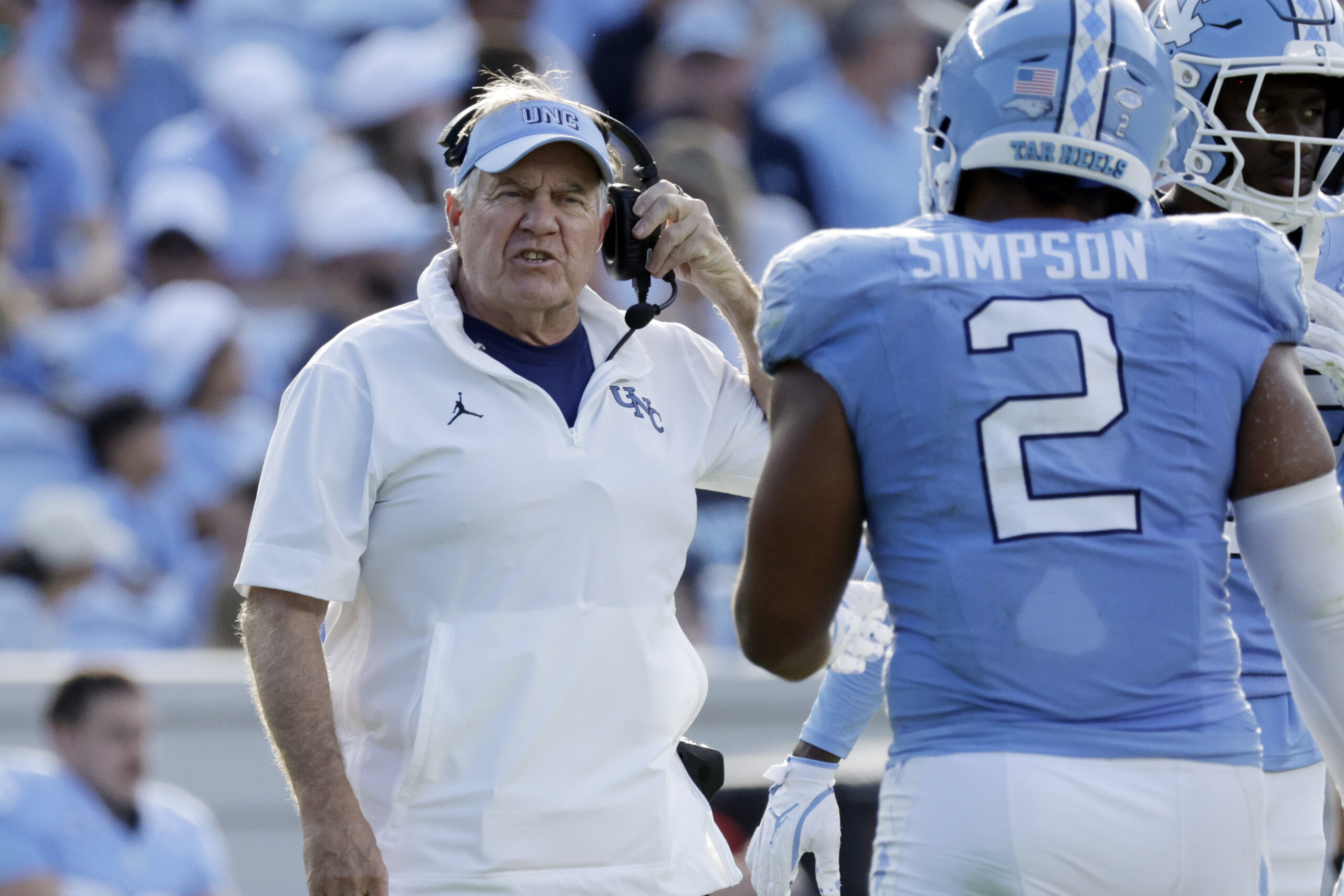
UNC football head coach Bill Belichick talks to linebacker Andrew Simpson (2) during the Tar Heels’ against Richmond, Saturday, Sept. 13, 2025. (Photo via AP Photo/Chris Seward.)
While the spotlight might be brightest on Carolina football right now thanks to Belichick’s mystique, a coaching carousel with a variety of stakeholders influencing hiring and firing decisions is not unusual for the program. The tumultuous college sports landscape and university’s newfound investment into football heightens the importance of delivering on lofty dreams of national relevance under the Super Bowl winner’s leadership.
After an unimpressive 2-2 start, though, more questions about both the team and the head coach are bubbling up — and the mess UNC might be heading for with Belichick will feel quite similar to most long-time Tar Heel football fans.
Featured image via UNC-Chapel Hill.
 Art Chansky is a veteran journalist who has written ten books, including best-sellers “Game Changers,” “Blue Bloods,” and “The Dean’s List.” He has contributed to WCHL for decades, having made his first appearance as a student in 1971. His “Sports Notebook” commentary airs daily on the 97.9 The Hill WCHL and his “Art’s Angle” opinion column runs weekly on Chapelboro.
Art Chansky is a veteran journalist who has written ten books, including best-sellers “Game Changers,” “Blue Bloods,” and “The Dean’s List.” He has contributed to WCHL for decades, having made his first appearance as a student in 1971. His “Sports Notebook” commentary airs daily on the 97.9 The Hill WCHL and his “Art’s Angle” opinion column runs weekly on Chapelboro.Chapelboro.com does not charge subscription fees, and you can directly support our efforts in local journalism here. Want more of what you see on Chapelboro? Let us bring free local news and community information to you by signing up for our newsletter.

